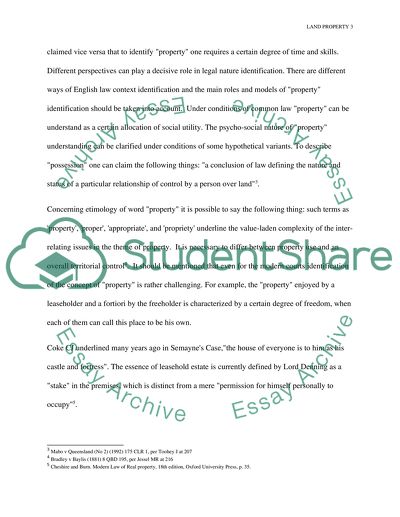Cite this document
(“The Idea of Property in Land Essay Example | Topics and Well Written Essays - 2250 words”, n.d.)
The Idea of Property in Land Essay Example | Topics and Well Written Essays - 2250 words. Retrieved from https://studentshare.org/law/1612191-current-law-defining-land-creates-a-world-of-pure-ideas-from-which-everything-physical-or
The Idea of Property in Land Essay Example | Topics and Well Written Essays - 2250 words. Retrieved from https://studentshare.org/law/1612191-current-law-defining-land-creates-a-world-of-pure-ideas-from-which-everything-physical-or
(The Idea of Property in Land Essay Example | Topics and Well Written Essays - 2250 Words)
The Idea of Property in Land Essay Example | Topics and Well Written Essays - 2250 Words. https://studentshare.org/law/1612191-current-law-defining-land-creates-a-world-of-pure-ideas-from-which-everything-physical-or.
The Idea of Property in Land Essay Example | Topics and Well Written Essays - 2250 Words. https://studentshare.org/law/1612191-current-law-defining-land-creates-a-world-of-pure-ideas-from-which-everything-physical-or.
“The Idea of Property in Land Essay Example | Topics and Well Written Essays - 2250 Words”, n.d. https://studentshare.org/law/1612191-current-law-defining-land-creates-a-world-of-pure-ideas-from-which-everything-physical-or.


